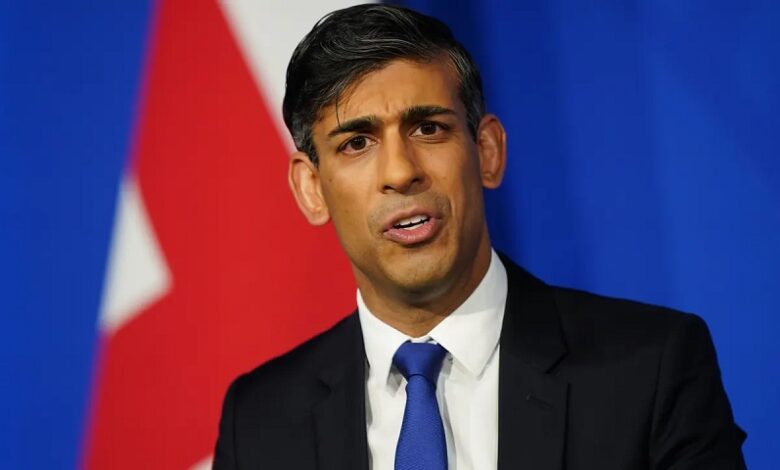Rishi Sunak’s Claims of Childhood Financial Struggles: A Closer Look

News Mania Desk/ Agnibeena Ghosh/14th June 2024
Rishi Sunak, the current UK Prime Minister, has recently faced scrutiny for his portrayal of his childhood as one of financial struggle. Despite his statements about lacking luxuries like Sky TV during his youth, new details about his upbringing have emerged, painting a different picture.
Sunak’s childhood home in Southampton was a six-bedroom property with amenities such as a double garage and space for a gym. This revelation has sparked criticism and accusations of Sunak being out of touch with the financial realities of many ordinary families. The house, located in a well-to-do cul-de-sac, was purchased by Sunak’s parents in 1981, a year after his birth. A floor plan from when the house was last sold reveals it had an ensuite bathroom and walk-in wardrobe for the master bedroom, along with balconies and multiple rooms that could be used as a study or gym.
During a recent interview with ITV, Sunak awkwardly laughed when questioned about his understanding of the financial struggles facing typical families today. He claimed his parents had to make sacrifices, prioritizing education over other desires. When pressed for specific examples of what he went without, Sunak mentioned the lack of Sky TV, a comment that has been met with skepticism and criticism given the luxurious nature of his childhood home.
Sunak, now 44, attended Winchester College, one of the most expensive boarding schools in the country. His education and subsequent career have been marked by privilege, culminating in his current position as one of the wealthiest inhabitants of Downing Street. Sunak and his wife, Akshata Murty, have a combined fortune of £651 million, placing them among the richest people in the UK.
This narrative of financial struggle is contrasted by Sunak’s substantial wealth and the opulent environment he was raised in. Critics argue that his attempt to relate to the economic hardships of ordinary families falls flat, given the stark differences between his upbringing and the reality faced by many across the UK.
Further complicating Sunak’s portrayal of his childhood are recent revelations about his tenure as Chancellor of the Exchequer. The Treasury, under his leadership, blocked plans to provide laptops to poorer children during the COVID-19 lockdown, a decision that has drawn significant backlash and added to the perception of Sunak being out of touch with the needs of less affluent families.
In the face of this criticism, Sunak has maintained his stance, insisting he has not lost hope of winning the next general election. He continues to emphasize the sacrifices his parents made to ensure a good education for their children, framing his story as one of prioritizing long-term benefits over immediate comforts.
However, the disconnect between Sunak’s claims of childhood deprivation and the reality of his upbringing poses challenges for his public image. As the Prime Minister, his personal narrative is scrutinized closely, and inconsistencies can undermine public trust. His portrayal of his childhood, intended to foster relatability and empathy, instead highlights the vast gulf between his experiences and those of the average citizen.
Sunak’s story underscores the importance of authenticity in political discourse. While he seeks to connect with voters by sharing personal anecdotes, the luxurious details of his past risk alienating those he aims to empathize with. The ongoing debate around his upbringing and financial status serves as a reminder of the delicate balance politicians must strike between personal narrative and public perception.
In conclusion, Rishi Sunak’s portrayal of his childhood as one of financial struggle is contradicted by the luxurious details of his upbringing. His attempt to connect with voters on the basis of shared financial hardships faces significant criticism, given his substantial wealth and privileged background. This controversy highlights the challenges public figures face in maintaining authenticity and relatability in their personal narratives.






